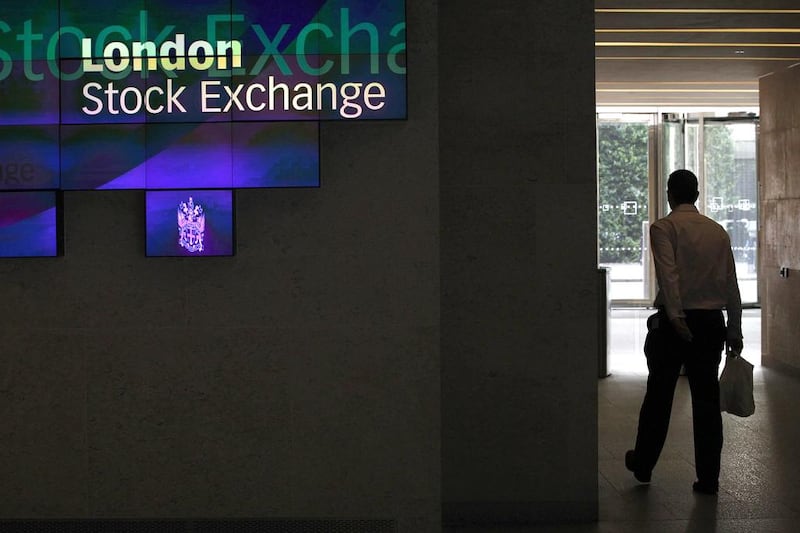With new rules introduced last month by the Ministry of Economy, observers say an important step has been taken towards making listings on the local bourses more attractive.
The regulations allow for companies to use existing shares or raise fresh equity capital when listing on the Abu Dhabi Securities Exchange or Dubai Financial Market.
The framework is a marked improvement to the existing one, in which companies had to increase their capital by 55 per cent and founding shareholders had to lock up their equity for two years following the initial public offering.
“Selldown was always a long-term requirement from all market participants,” said Arijit Nandi, the vice president of investment banking at The National Investor in Abu Dhabi.
“Finally SCA has agreed to it, which will motivate other companies to use the IPO route as an exit rather than private placement or international listings.”
In a foreshadowing of the new tenor of regulation, in May the SCA provided Emaar Properties with an exemption to the old rules when it was thinking of listing its retail unit in London to sell 25 per cent of the business and raise as much as US$2.45 billion. Now the company is considering a listing on the DFM instead.
“Now with new regulations, sponsors can exercise how much capital they need and how many shares they would like to sell down during the IPO,” Mr Nandi said.
Amid stiff regulations from the UAE regulator, the Securities and Commodities Authority, a handful of companies in recent years flocked to the London Stock Exchange to pursue international listings.
In March 2012, Abu Dhabi Capital Management sought to list its Qannas fund on London’s Alternative Investment Market. One month later, Abu Dhabi-based NMC Health became the first local company to list on the premium segment of the London bourse after it raised £117 million (Dh722.9m) from investors. The following year NMC’s rival, Al Noor Hospitals Group, sought a listing on the London exchange raising £221m.
The three companies cited regulatory red tape and lack of liquidity as among the main barriers to a local listing.
“The benefit of listing abroad is to access international foreign investors, better peer representation as a benchmark to selected sectors such as health care, and flexible regulatory valuation mechanisms,” said Tariq Qaqish, the head of asset management at Al Mal Capital in Dubai. “There are a lot of advantages to being listed outside, whether in London or outside, but listed companies have to be liquid to maintain that status.”
The UAE businesses that have listed in London have shown strong performances in terms of stock price, but their trading volumes have been lacklustre.
Shares of NMC have steadily risen 5.2 per cent this year, trading at 461 pence. The daily average traded volume has stood at about 1,000 over the past two months. The stock has offered a 119.5 per cent return to its investors since its listing.
Shares of Al Noor have jumped 12.8 per cent this year, trading at 1,013.00 pence. Volumes are comparable to NMC. The total return since Al Noor’s listing has been 76.18 per cent.
Qannas Investments has offered a 9.6 per cent return year to date. It is now priced at £1.05. (On Wednesday, Qannas announced a special dividend of 11.5 pence a share after it had sold four of its stakes for Dh116.7m.) It has risen 44.6 per cent since its listing.
But not all UAE-based companies that have listed on international markets have stayed there.
In 1998, Aramex became the Arab world’s first company to list on the Nasdaq stock exchange. Despite gaining regional credibility, the courier company failed to get the liquidity it was looking for.
After Abraaj Capital took the company private in 2002, Aramex delisted from Nasdaq that same year, and three years later listed on the Dubai Financial Market. Today, institutional investors can hardly get their hands on Aramex shares as the company is almost always touching its foreign ownership limit of 49 per cent.
Still, analysts believe more is required on the regulator’s part to encourage public share sales from UAE companies.
“The regulation allows for the selldown, but to have more companies listed you need both the selldown and capacity to reduce the floating,” said Fathi Ben Grira, the chief executive at Mena Corp, an Abu Dhabi investment company.
“The problem today is that the bulk of the business of IPOs is the family groups, who want to be able to sell down and but still be in control. The minimum float on the DFM or the ADX is 55 per cent. That’s why Al Habtoor wanted to go for Nasdaq Dubai, which is 30 per cent.”
Perhaps the only competitive advantage London has is that it allows for book building – the process of accepting orders from investors indicating the number of shares they want to buy and at what price – for the valuation process, which is still not allowed on onshore exchanges, Mr Nandi said.
halsayegh@thenational.ae
Follow The National's Business section on Twitter






